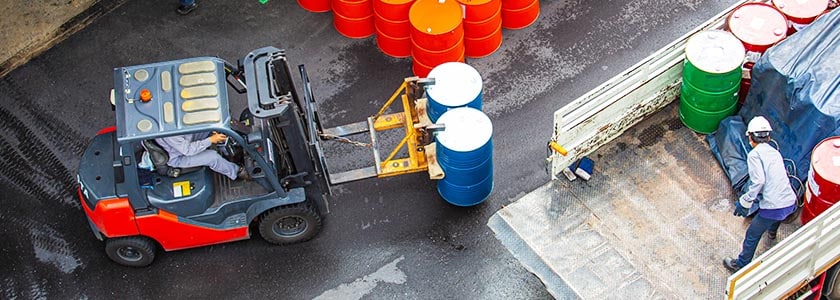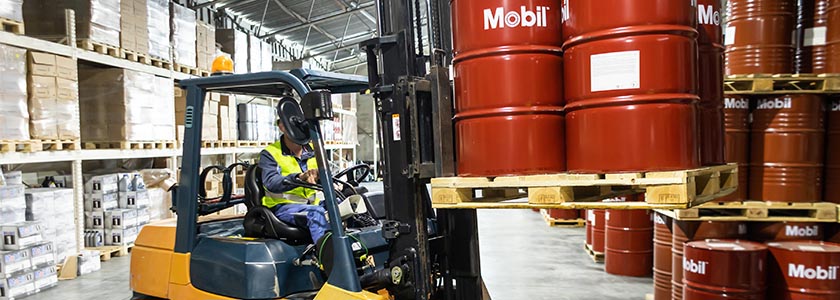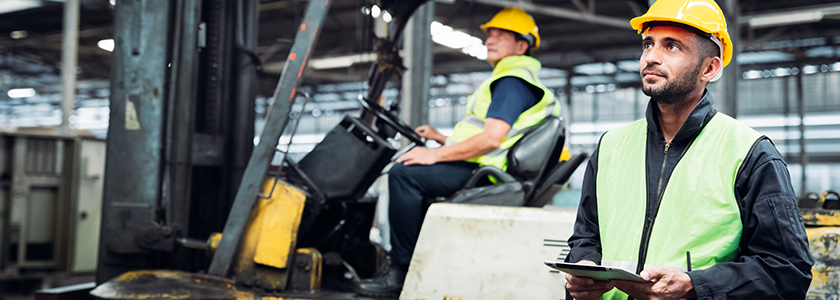What is drum handling?
Drum handling is a term that covers the lifting, shifting and storage of drums and barrels. These cylinders are used to contain all manner of liquids, including fuels, hazardous chemicals and materials used in the food and beverage, Mechanical, petrochemical and manufacturing industries.
The weight and unique shape of drums makes them a complicated item to move. As such there is a range of dedicated drum handling equipment designed to make the movement of drums around your warehouse safer and more efficient.
The ultimate goal of drum and barrel handling equipment is to transport these items safely. But while efficiency and productivity may be secondary concerns, the gains in these areas can be significant – but only if a warehouse chooses its drum lifters/handling equipment wisely, and puts strong systems and procedures in place to ensure this equipment is used as it should be.
6 tips for safe drum handling in warehouse
So what exactly does safe drum handling look like? Here are six of the most important drum handling safety tips:
1. Invest in the right equipment
Drums can be dangerous, particularly when they are full of hazardous materials. You should not move 200 litre drums around manually, or loose on a pallet with a forklift (or worse, just sitting on the forklift forks), as these situations present significant and entirely avoidable risks to your workers.
You therefore need purpose-built drum handling equipment (AKA 55 gallon drum handling equipment) – the standard size for a drum – to ensure your workers and warehouse are safe. A wide variety of equipment is available, including forklift drum handling equipment, crane drum handling equipment, and manual trolleys. If you’re unsure which solution is right for you, consult our experienced team at Stratalign.
2. Establish safe operating procedures
Conducted in an inherently confined space, warehouse drum handling needs to be done correctly every time to ensure your workers are safe and your productivity isn’t impacted. Establish safe operating procedures (SOPs) that align with your regulatory responsibilities (according to the Health and Safety at Work Act 2015) and the manufacturer’s instructions
Ensure the following procedures are adhered to:
- Ensure drum handling attachment is secured to the forklift correctly.
- Ensure the drum is gripped or secured firmly in the drum handling attachment before lifting or tipping the drum.
- Operate the forklift with care when the drum is suspended.
3. Train your team
Once your SOPs have been established, you need to make them known to all your team members. Conduct initial training and ensure everyone understands their responsibilities. Revisit your procedures on a regular basis to help your team keep them top of mind. Prominently display your SOPs so that your team can refer to them whenever they need to.
4. Protect your team
Ensure every person in your warehouse – both those operating the drum handling equipment and those who are simply working near it – wears the appropriate personal protective equipment (PPE).
5. Conduct regular inspections
As part of your safe operating procedures you should define how regularly your drum handling equipment should be inspected, and who should inspect it. Remember that some parts of the equipment may need to be inspected more regularly than others, and that a visual check of the most critical parts should be conducted before every lift.
6. Practise safe storage
Safe storage forms a key aspect of safe drum handling. Ensure all drums are labelled and stored correctly – i.e. away from materials that a spill could react with, and at an appropriate height given the weight and contents of a particular drum.
Helping New Zealand manufacturers safely solve their lifting challenges with the best local and global solutions.
At Stratalign we’ve spent years helping Kiwi warehouse businesses understand the drum handling equipment that could make their site safer, more efficient and more productive. We also know the value of support, so our service extends far beyond the purchase, including all the guidance you need to use your new equipment safely.





